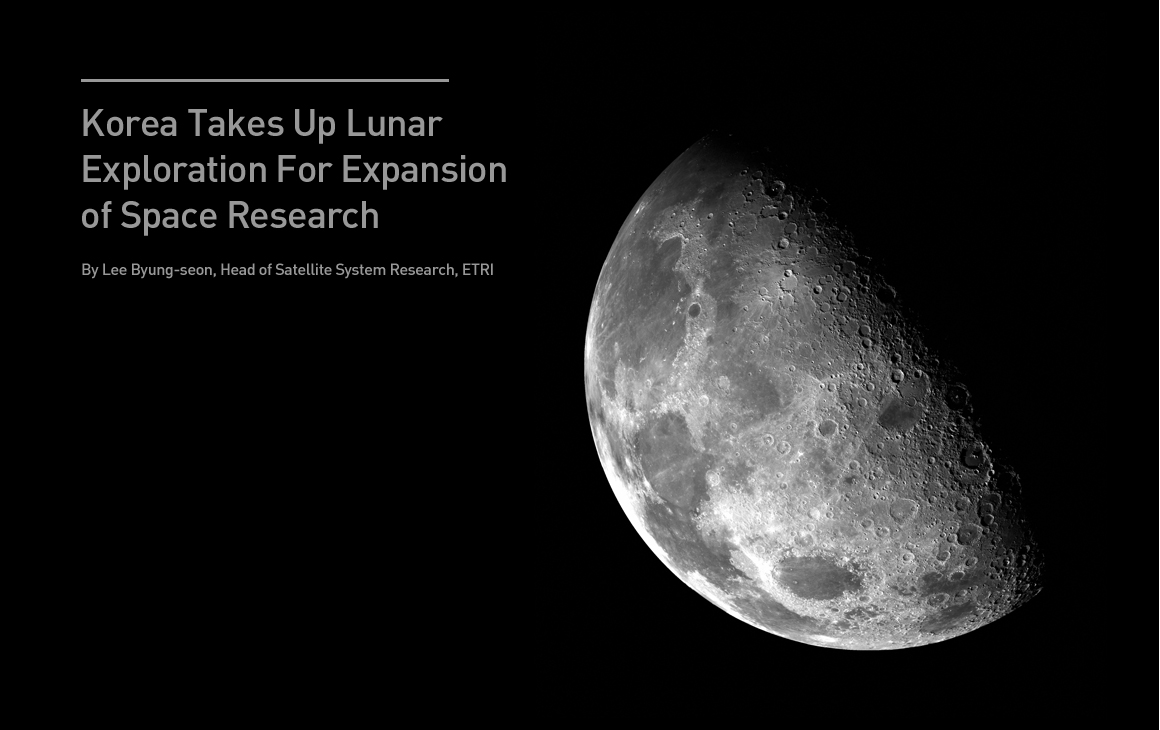

Acquiring Space Exploration Technology with Korean Launch Vehicles
Lunar exploration was first planned in Korea towards the end of 2007 with the purpose of launching a lunar exploration vehicle developed in Korea,
and for the purpose of expanding the scope of space activities by acquiring space exploration technology.
In addition, space exploration and development programs are considered symbols of national power.
Korea’s lunar exploration project will proceed in two phases. Phase 1, scheduled for 2015 to 2017,
involves the development and launch of a test lunar orbiter based on international cooperation.
A foreign launch vehicle will be used as the test lunar orbiter, and the results of Phase 1 will be utilized to independently carry out Phase 2,
which is the independent development and launch of a lunar exploration vehicle(orbiter, lander) from 2018 to 2020.
The lunar orbiter and lander(including a rover) will be sent out using a launch vehicle developed solely in Korea.
The following technologies are required for lunar exploration.
The lunar exploration vehicle will be equipped with a payload system for lunar science and technological verification.
The lunar science payload system analyzes the lunar environment, explores resources, and seeks answers to lunar creation,
while the technological verification payload system is in charge of developing space internet, atomic cells, and rovers.

Establishing Technologies for Lunar Exploration
The Lunar Exploration Cooperation Association, formed by 15 government-funded research institutes,
is conducting convergence research on lunar exploration.
The results will be implemented in Phase 1 of the lunar exploration project from 2015.
ETRI has been assigned to space internet and ground control research, classified under space communications and ground station.
Space internet research in Phase 1 will consist of a Disruption Tolerant Network(DTN) test between the test lunar orbiter, CubeSat,
the space internet ground base station(test lander), and the test ground rover. Phase 2 of the project will rely on these results.
For space internet testing, PhoneSat will be in the form of a micro-satellite based on a smartphone manufactured in Korea.
The ground control system will check the status of the orbiter and lander, and send mission commands.
Meanwhile, ETRI plans to establish a lunar exploration control system by adding specific technologies to the control systems
of the low-orbit multi-purpose satellite Arirang, and the ocean and meteorological satellite Cheollian.













